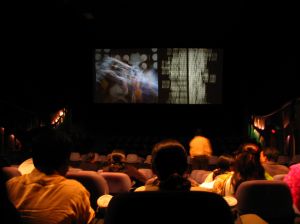
A Home Theater Speaker GuideBlowing the roof off of your home or apartment to the sounds of Star Wars is now a reality when you purchase a home theater speaker system to impress your friends and make the best movies even better with full surround sound. The crispness and clarity of a full home theater speaker system can now be yours with the right equipment, the correct setup, and all the extras your wallet can handle. Of course, setting up a bass-thumping system doesn’t need to rob you of your millions but money does help things sound a little bit sweeter.
Home Theater Speaker TypesThe most important speaker for the fleshing out of your home theater speaker experience is the subwoofer. The subwoofer is the speaker that takes you to another place, the speaker that allows you to actually physically feel the sound, and the speaker that rumbles your seats when those huge Lord of the Rings battle scenes hit your screen. The subwoofer produces the lowest of audible frequencies in your home theater setup. In other words, the subwoofer handles all the bass. There are also main speakers. These carry the majority of the high end sound. It is generally a bigger unit and traditionally has the speaker controls on it as well. This speaker is responsible for carrying the dialogue or major sounds whereas the other speakers in your surround sound speaker setup will carry the attributing sounds that help bolster the overall effect of having a “wall of sound”. Home Theater Speaker PlacementOnce you have established your speaker types and made the big purchase, it’s time to setup your speakers. Always follow the instructions for connections and cable wiring as we wouldn’t want to burn the house down due to improper installation. Now, the shape of your room really can either help or hinder the effects of your surround sound setup, as with the acoustics of the room. In general, trial by fire is the best way to go about it. Setup your speakers as explained in the instruction manual and test them out. Move them around to get the perfect fit in your home theater room.
There are, however, some general rules for home theater speaker placement. First, place the subwoofer near the television either to the right or to the left. Second, place the front channel (or main speaker channel) directly in front of the listening area. This speaker carries most of the main sound. Third, place the left and right main front speakers on the corresponding sides of the front channel. A good idea is to elevate these speakers. In general, you can add other speakers around and behind the listening area to your own personal tastes.
|

 BlinkList
BlinkList Facebook
Facebook Delicious
Delicious Livejournal
Livejournal Stumbleupon
Stumbleupon Google Bookmarks
Google Bookmarks Yahoo My Web
Yahoo My Web Digg
Digg